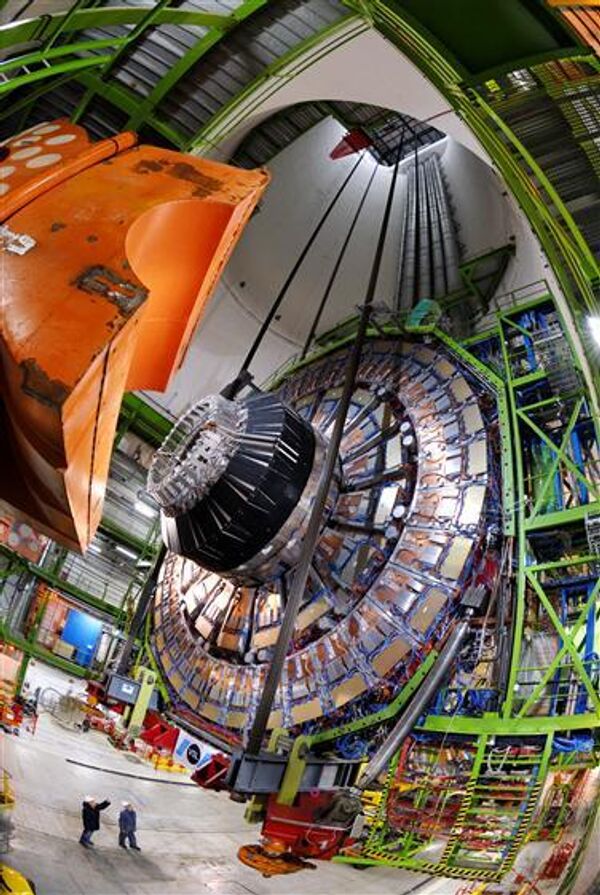MOSCOW, October 10 (RIA Novosti) - The European Organization for Nuclear Research (CERN) will re-launch its particle accelerator, which has been out of operation since last year, in November, the body's director general said.
Speaking at a news conference in RIA Novosti on Friday, Rolf-Dieter Heuer said the particle collider would initially run at 3.5 TeV per proton beam, or one-fourth of the projected energy output, "because it would allow the LHC operators to gain experience of running the machine safely."
He added that the device could reach the top energy output of 14 TeV per beam sometime after 2011.
The collider, located 100 meters under the French-Swiss border with a circumference of 27 km, enables scientists to shoot sub-atomic particles round an accelerator ring at almost the speed of light, channeled by powerful fields produced by superconducting magnets.
In order to fire beams of protons round the vast underground circular device, the entire ring must be cooled by liquid helium to minus 271 degrees C, just two degrees above absolute zero.
By colliding particles in front of immensely powerful detectors, scientists hope to detect the Higgs boson, nicknamed the "God particle," which was hypothesized in the 1960s to explain how particles acquire mass. Discovering the particle could explain how matter appeared in the split-second after the Big Bang.




